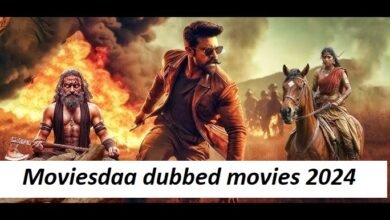Exploring Iconic Cinema: 7 Movie Roles That Defined Their Genres

Introduction
In the realm of cinema, certain characters stand out, leaving an indelible mark on their respective genres. These characters, brought to life by remarkable performances, have not only captivated audiences worldwide but have also set benchmarks in filmmaking. In this blog post, we delve into “7 movie roles” that have defined their genres, exploring how each character’s uniqueness contributes to their film’s lasting legacy.
The Visionary Leader – “The Godfather” (1972)
The role of Vito Corleone in “The Godfather” is undoubtedly one of the most pivotal “7 movie roles” that redefined the gangster genre. Portrayed by Marlon Brando, Vito Corleone’s character encapsulates power, family values, and complexity. This role not only earned Brando an Academy Award but also set a new standard for character development in crime dramas.
The Reluctant Hero – “Die Hard” (1988)
Bruce Willis as John McClane in “Die Hard” revolutionized the action film landscape. Representing “7 movie roles” that transformed action cinema, McClane’s everyman persona, combined with his resilience against overwhelming odds, redefined what audiences expect from action heroes. This role turned Willis into a household name and became a formula replicated in numerous action films thereafter.
The Fierce Survivor – “Alien” (1979)
Sigourney Weaver’s portrayal of Ellen Ripley in “Alien” is one of the “7 movie roles” that set new standards for the science fiction and horror genres. Ripley’s character, strong, intelligent, and resourceful, broke the mold for female protagonists in science fiction, making this role a beacon for feminist strength in a predominantly male-centric industry.
The Charismatic Outlaw – “Pirates of the Caribbean” (2003)
Johnny Depp’s Captain Jack Sparrow in “Pirates of the Caribbean” exemplifies “7 movie roles” that have left a lasting impression on the fantasy adventure genre. Depp’s quirky and charismatic portrayal of the pirate captain brought humor and unpredictability to the role, influencing the depiction of antiheroes in later films.
The Tragic Hero – “The Dark Knight” (2008)
Heath Ledger’s Joker in “The Dark Knight” represents one of the “7 movie roles” that have profoundly impacted the superhero genre. Ledger’s haunting and nuanced performance delivered a complex antagonist, elevating the comic book villain to cinematic art. His posthumous Oscar win underscored the role’s significance in film history.
The Defiant Advocate – “To Kill a Mockingbird” (1962)
Atticus Finch, played by Gregory Peck in “To Kill a Mockingbird,” is one of the iconic “7 movie roles” in drama. Finch’s moral fortitude and commitment to justice in the face of racial prejudice have made this role a symbol of integrity and righteousness, inspiring viewers and filmmakers alike.
The Ingenious Recluse – “Forrest Gump” (1994)
Tom Hanks’ portrayal of Forrest Gump is among the “7 movie roles” that beautifully blend drama with historical narrative. Gump’s innocent wisdom and accidental adventures through American social and political landscapes provide a poignant commentary on the American experience, making the role a storytelling masterpiece.
Conclusion
The “7 movie roles” discussed in this blog have not only shaped their respective genres but have also stood the test of time, influencing countless other films and performances. These characters remind us of the power of cinema to influence, inspire, and reflect societal changes and human nature. As we continue to see new films being made, the enduring legacy of these roles serves as a testament to the creativity and depth possible in film.
FAQs
- What makes these “7 movie roles” so influential in their genres?
- These roles have each introduced a unique approach to their character that set new standards for storytelling and character development in their respective genres.
- How did these roles impact the actors’ careers?
- Each role was a career-defining moment for the actors, often earning them critical acclaim and numerous awards, while also significantly boosting their professional standing in the industry.
- Are these roles reflective of the times in which the films were made?
- Yes, each role not only reflects the social and cultural contexts of their times but also challenges and reshapes those contexts through the film’s narrative and its reception by audiences.
- How do these characters influence modern cinema?
- These characters continue to influence film through the archetypes they established, the storytelling techniques they popularized, and the thematic depth they introduced to their genres.
- Could these movies have been as successful without these iconic roles?
- While the overall production quality, direction, and script play significant roles in a film’s success, the unique portrayal of these iconic characters is central to the films’ lasting appeal and success.




